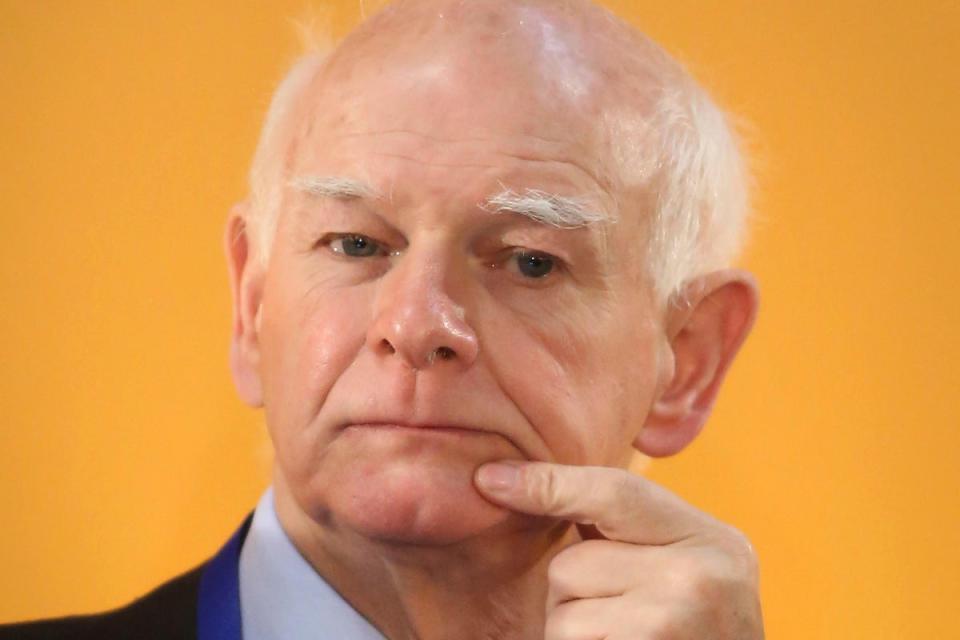
The chairman of NatWest has come under fire for claiming it is “not that difficult” to get on the property ladder in the UK.
Sir Howard Davies said that people “will have to save more”, but that “I don’t think it is that difficult at the moment”.


He made the claim on BBC Radio 4’s Today programme, leading exasperated presenter Amol Rajan to say: “To buy a house? In this country? Are we living in the same country, or are you reporting from overseas?”
Housing campaigners said the claim was “astounding” for such a senior employee at one of Britain’s biggest banks. Shadow chancellor Rachel Reeves branded Sir Howard “out of touch”.
And former Ukip leader Nigel Farage, who was embroiled in a row with NatWest after it closed his bank account, said Sir Howard has “obviously not been talking to anybody under the age of 40”.
But, defending the claim, Sir Howard said: “You have to save and that is the way it always used to be.”
And he later sought to clarify his remarks, saying his claim was meant to reflect easier mortgage access.
Sir Howard added: “Given recent rate movements by lenders there are some early green shoots in mortgage pricing and while funding remains strong, my comment was meant to reflect that in this context access to mortgages is less difficult than it has been.
“I fully realise it did not come across in that way for listeners and as I said on the programme, I do recognise how difficult it is for people buying a home and I did not intend to underplay the serious challenges they face.”
Figures from the Office for National Statistics (ONS) show just how much house prices have grown over the last decade.
Full-time employees in England could expect to spend around 8.3 times their annual earnings buying a home in 2022, according ONS.
A decade earlier, in 2012, the figure stood at 6.8 times annual earnings, while 25 years ago in 1997 it stood at 3.5.
Ms Reeves told GB News: “I don’t think those comments are in tune with the reality faced by millions of people in Britain. There are many people who do own their own home but are struggling with the higher mortgage costs.
“Many, many people will find those remarks quite out of touch with the situation that they and their family face.”
Mr Farage told GB News: “Anyone living in London or anywhere near London, or actually Manchester, or any of our big cities, they are Generation Rent. The only way they can get onto the property ladder is if their parents give them their inheritance early.
“It is all but impossible for young people to get on the property ladder.
“[Sir Howard] couldn’t be further away from the centre of gravity of public opinion… he couldn’t be further away from his customers.”
And housing campaign group Generation Rent chief executive said Sir Howard’s comments were “astounding”, especially for a senior banker.
“What planet does he live on?” chief executive Ben Twomey said.
Mr Twomey said: “We are in a cost of renting crisis that is making it incredibly hard for people to buy a home as we hand a third of our wages every month over to our landlord.
“Interest rates have increased but house prices have yet to correct, meaning we still need to save for a huge deposit but also would need a high income to afford monthly mortgage repayments.”
Rohit Kohli, director at advisers The Mortgage Stop, said: “This is another case of an out-of-touch overpaid banker not recognising the actual economic situation that millions of people in this country are facing every day.
“It’s not just what has happened over the last couple of years but has been a systemic problem for over a decade with house prices booming whilst wages stay flat.”
The row erupted as property values were reported to have increased by 1.7 per cent on average across 2023, with the average home valued £4,800 higher than at the end of 2022, according to the Halifax house price index.
Average house prices rose by 1.1 per cent month-on-month in December, the third monthly rise in a row.
The typical UK house price in December 2023 was £287,105, up from £282,305 in the same month a year earlier.
Sir Howard also faced questions about the fallout of the debanking saga, in which Mr Farage revealed Coutts, a luxury bank owned by NatWest, was planning to close his account.
Mr Farage claimed it was due to his political opinions, but a BBC article appeared soon afterwards claiming the account was closed for commercial reasons.
The bank’s former chief executive Dame Alison Rose resigned after she admitted she had spoken to a journalist about Mr Farage’s relationship with Coutts.
Asked whether it was reasonable for the banking giant’s board to say they had full confidence in Dame Alison after the reports emerged, Sir Howard said: “I continue to say that the judgment that we made at the time was a reasonable one.
“At the time what we also said was that we wanted an independent legal review, which we commissioned, to be able to satisfy ourselves what was said and what was not, because it was not remotely clear at the time.”
He was also pressed on whether the review carried out by lawyers on behalf of the bank should have interviewed Mr Farage.
Law firm Travers Smith found failures in how the bank treated confidential information and how it communicated with Mr Farage.
Sir Howard responded: “That was a matter for them as to what they thought they needed to understand about the decision-making processes within the bank, and I think it was a very thorough report, it was an independent report, and I have no reason to question the conclusion that they reached.”
